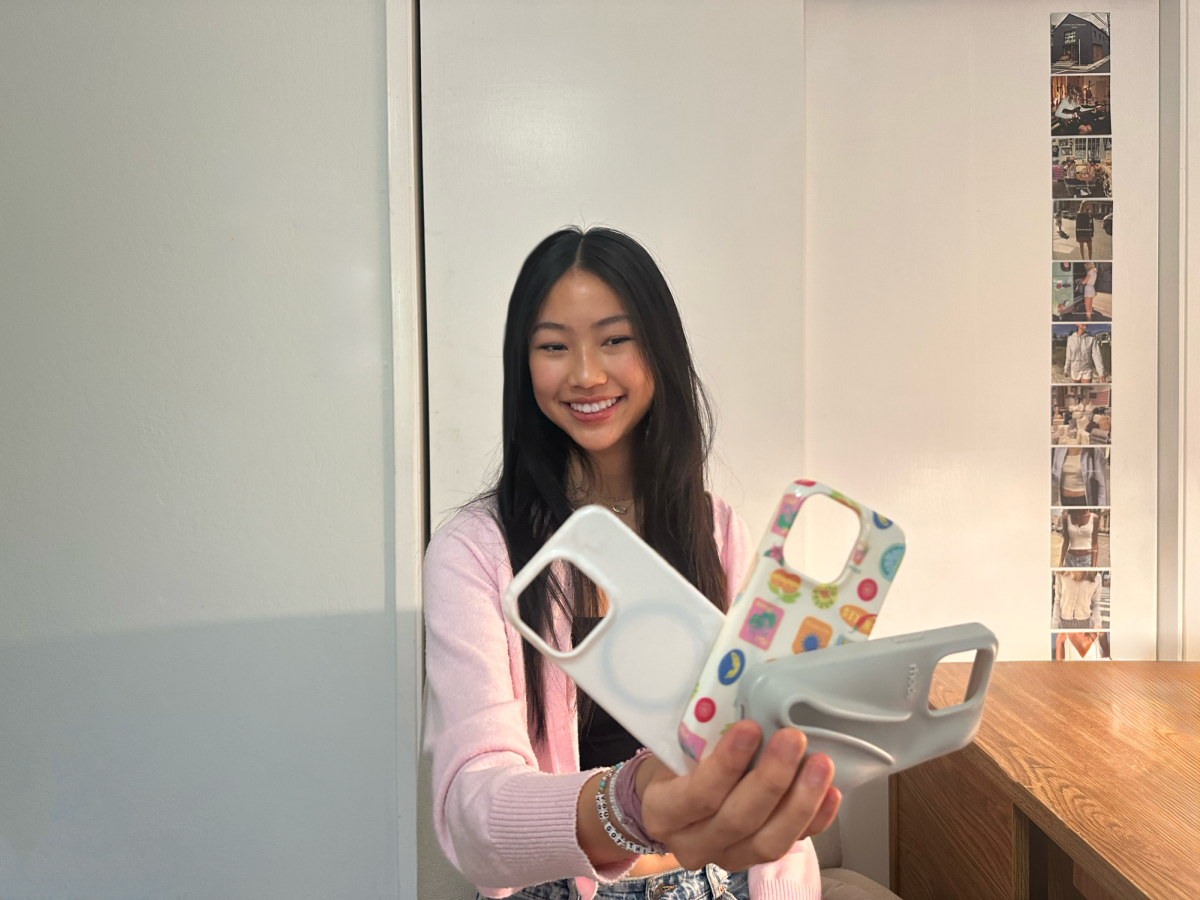Sophomore Audrey Kline promised herself that she would never buy from Dove, a beauty care company that has received multiple accusations of being racially insensitive.
In 2017, it released an ad featuring a black woman turning white after using Dove Body wash. In 2011, the company released another controversial ad showing three different women standing side-by-side, each one with lighter skin than the woman to the left of her. Behind them, there were before and after signs; the African American woman was positioned in front of the “before” sign with cracked skin, and the white woman was positioned in front of the “after” sign with smooth skin. The ad read, “Visibly more beautiful skin.”
Although the company apologized after both advertisements and said they support racial diversity, many customers were not convinced, calling for a boycott of the company and its products. There seem to be no long-term impacts of the incidents, but that’s not to say that all potential customers have forgotten.
Nowadays, some companies have turned to social media to promote diversity in order to advertise to a socially conscious younger generation that primarily communicates online.
Millennials are generally known to advocate sustainable development goals such as increasing equality, combating climate change, reducing poverty and promoting peace. According to Forbes, they place such a high emphasis on being aware of what’s happening around them because they have grown up with the internet and social media. They use these platforms to stay connected and support companies that care about their effect on society.
While companies promote racial diversity in advertisements, their products often do not reflect these efforts. In the makeup industry, shade ranges for makeup products often only cater to lighter skin tones.
For example, the makeup brand Tarte frequently showcases smiling pictures of women of color on its Instagram. However, out of the 15 shades of its Shape Tape foundation released in 2018, only three were suitable for darker skin tones, according to Cosmopolitan.
After receiving backlash from many people over the limited shade ranges, Tarte apologized on their Instagram, saying they “just got so caught up in #shapetapenation and seeing your tweets asking for it… We wanted to get the product out as fast as possible, & we made the decision to move forward before all the shades were ready to go.”
Sophomore Shivali Kattumadam called the scandal shameful and said that brands can’t just forget to add shade ranges to their product.
“Darker shades should not be an afterthought,” said Kattumadam. ”With such a well-known product, it was Tarte’s responsibility as such a big company to make sure that they had a wide range of shades before releasing the product in the first place.”
She said that it is unacceptable for companies to post pictures on Instagram and other social media accounts featuring women of color if their products do not include shades for all those women.
If people recognize this disingenuity, then why do companies continue to put on failed campaigns?
According to Marketing Dive, a study by Deloitte-owned agency Heat revealed that companies with a variety of cultural groups in their advertising see improved perception among consumers and stock market gains.
Brands with high diversity scores and representative ads saw an average stock gain of 44 percent in a seven-quarter period and an 83 percent higher consumer preference, according to Heat.
A poll conducted through the Saratoga High School Facebook group asked students if it matters to them whether a brand promotes diversity and inclusivity. Of the 95 responses, 63 said that it did matter while 32 said it did not.
Apart from racial diversity, companies often exploit the LGBTQ+ community in an effort to increase sales, a practice coined “rainbow washing.” For example, many companies use members of the LGBTQ+ community in their marketing during Pride Month in June but do not openly speak about their support any time other than that month.
Justice Namaste, the social media coordinator at WIRED, has written that rainbow washing “allows people, governments and corporations that don’t do tangible work to support LGBTQ+ communities at any other time during the year to slap a rainbow on top of something in the month of June and call it allyship.”
While many companies that voice their support for the LGBTQ+ community genuinely make strides to show their support by donating profits from their Pride collections, two in five companies with pride campaigns donated no proceeds to LGBTQ+ causes in 2019, according to Yahoo Finance.
“I think it’s just really selfish,” said sophomore Zoe Gonder “They just use [pride campaigns] during that one month because they know that that’s when people are going to go to things like pride parades and will want to buy those products.”
An example of this is Victoria’s Secret’s PINK. During Pride Month in 2019, the company posted a tweet supporting the LGBTQ+ and received pushback referring to the negative comments Ed Razek, the company’s chief marketing officer, made about transgender models.
When asked if the show would have transgender models in an interview with Vogue last November, Razek said, “No. No, I don’t think we should. Well, why not? Because the show is a fantasy. It’s a 42-minute entertainment special. That’s what it is.”
Despite such comments from its company leadership, Victoria’s Secret continues to release Pride collections of underwear, shirts and pants all decorated with rainbow colors.
Kline said she will not fall for “marketing scams” based on fake efforts to promote inclusivity.
“I could never forgive a company that purely promotes inclusivity for profit when their actions say something else,” Kline said.
























